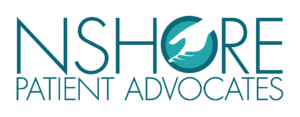SAFE DISCHARGE
Two words. Very critical concept! As patient advocates, we have been approached by patients and their families who were not properly prepared for their own or their loved one’s discharge from a hospital, or other medical facility (such as a nursing home or rehab center).
We’ve heard from patients or their families that their loved ones
- were discharged without the family knowing or with just same-day notice.
- needed at-home caregiving but nothing was in place due to lack of communication and preparation.
- don’t take their new medications because neither their loved one nor the family caregiver doesn’t know how to take them nor what they are for.
- And more.
This unpreparedness then resulted in either
- unexpected health care costs,
- overwhelmed family caregivers,
- slow progress in patient’s recovery,
- even hospital readmission,
- or any combination of those factors.
Why does this happen? Well, often the reason is insufficient discharge planning. Thankfully, this can be avoided.

What is Discharge Planning?
Discharge planning is the process in which is determined what kind of care the patient needs after leaving the hospital. It is not just a formality or an afterthought, it truly is a critical part of care with the purpose to ensure the patient’s safety post-hospital stay, reduce hospital readmission, improve patient health, and decrease health care costs.
While a discharge can only be authorized by a doctor, the discharge planning can be completed by doctors, nurses, and social workers. An equally important part in this process plays the patient and their dedicated advocate, most often a family caregiver, occasionally a professional patient advocate. (We use “family caregiver” throughout this blog post to include a professional advocate).
Sounds easy enough, doesn’t it? However, the reality is, especially these days, many nurses, doctors, and social workers are very busy and may not provide detailed information unless asked. Likewise, many patients don’t share pertinent information they may have nor do they know what questions to ask and rely on their hospital care team to provide for them.
What does a thoughtful Discharge Planning process look like?
Above all, the discharge planning process must contain all pertinent information necessary to the individual patient’s needs – medical, social, environmental, and such – that ensure a successful follow-up at the patient’s home (or a care facility they may go to next).
This is even more important with seniors (adults over 65), who are the largest demographic of patients in our hospitals and may have more complex needs than younger people post-discharge. Hence, if a senior needs to be released into the care of someone else, the family needs to be prepared for what to expect.
In this case, it is important for the patient and/or their family caregiver to participate in the process to ensure that the transition to home and the follow-up care are properly understood by both the discharging hospital team as well as the caregiver at home! While the hospital team has an understanding of the medical needs, the family caregiver can provide insights into the patient’s history, home life, and lifestyle.
Take a proactive approach and don’t wait for the hospital team to approach you, go ahead and arrange a meeting with them.
What are general important concerns that should be discussed?
Soon after your loved one’s hospital admission, get an estimated discharge date. This is important, as you may need time to make adjustments in your loved one’s home, order medical equipment, put in a vacation request at work to pick them up and settle them back in at home, hire caregivers, arrange meal service, etc.
Once you have a discharge date, arrange a conversation with the care team, and discuss your loved one’s situation, ask any question that helps you understand their medical situation, what transpired during hospitalization, and possible expectation for their future care at home. Your loved one’s care team may not know the exact answers to all of your concerns yet. But you want the heads up, the time to prepare. And most of these concerns will be addressed and possibly updated during the actual discharge again.
Don’t feel intimated and know the Golden Rule is to ask many questions, as many as you can think of, as this will help you get an idea of what to expect and prepare sufficiently.
Following are some concerns that should be discussed early as well as at discharge:
- Will your loved one be able to stay at home and live independently – will they need care at home? What type of care? Part or full-time? Skilled or supportive?
- Or will your loved one need to go to another care facility first or maybe be transitioned into a nursing home altogether?
- Will your loved one need therapy – physical, occupational, and/or speech? Who do you contact? Is it in-home or out of the home?
- Will your loved one qualify for Home Health care? (In case to qualify, a patient usually needs a bit more assistance but is still independent enough to live at home. A doctor can prescribe Home Health care, which is covered by Medicare. Home Health visits about 1-3 times per week for a few weeks).
- Go through all the medications on the discharge form and compare them to your loved one’s pre-hospitalization list of prescriptions. Make sure nothing is missing or understand why something may have been discontinued.
- Very important!! Ask if there are new medications? What are they for? How are they to be taken (time of day; swallowed, crushed, dissolved in mouth, with water or food, injected)? How do they interact with your loved ones already prescribed medications? (Highlight these meds on the final discharge form for easy recognition).
- Ask to have new prescriptions submitted to your loved one’s pharmacy, or ask where these prescriptions may otherwise be available.
- Ask about the possible necessity for durable medical equipment such as wheelchairs, walkers, hospital beds, urinals, bedside commodes.
- If your loved one requires wound care or bandages, ask how to apply these? Or where to go for professional care?
- The benefit of asking the preceding five questions soon after hospital admission is that you have the opportunity until discharge to learn from the care team how to administer medications (particularly injections); how to use a hospital bed, wheelchair, walker, and such; how to care for wounds. (Or you will learn your limitations and will have to plan accordingly).
- Are there any signs or symptoms that are red flags post-discharge? What could they look like? When to contact a doctor? When to go to ER?
- What follow-up visits are needed? With what type of doctor? Who makes these appointments, the hospital or the patient?
This is not an inclusive list. Your unique loved one and your particular situation may require other and/or more questions. You will know.
To make sure the patient or family caregiver understands what is being discussed, some care teams employ the so-called Teach-Back practice. This is the practice where the care team asks the patient (or family caregiver) to explain back the information that has been communicated to them versus simply replying with a “yes, I understand”. If your care team doesn’t offer this practice, you can initiate it on your own, just repeat everything you were told and confirm that you understood correctly.
Finally
Being a family caregiver carries great responsibility. As their caregiver, you are your loved one’s advocate tasked with seeking information and staying engaged in your loved one’s daily health journey.
Remember the Golden Rule – ask lots of questions. There are no right or wrong questions. They are all part of the process of being well-informed and well-prepared.
When the time comes to decision-making, don’t forget to speak to your loved ones to learn what their wishes and preferences are.
Special attention needs to be taken with Dementia patients. If safely possible, they benefit from being at home, because familiar environments are very important to provide comfort and peace.
For more detailed reading on the discharge process and for a discharge template, please see our links below in “Sources and Resources”.
Sources and Resources
Rights and Procedures for Medicare Beneficiaries in Various Care Settings. Center for Medicare Advocacy.
Discharge Planning: Know Your Rights. Next Avenue.
Percentage of U.S. population with a hospitalization in past year from 2000 to 2018, by age. Statista.com.
Teri’s Corner
Uninsured? You still have healthcare options. Daily Herald.
Put some spring into your walking. Daily Herald.
Nurses are rated No 1 profession in honesty and ethics – again. Daily Herald.
ICOPA 2022

Please click here for more information and to register:




